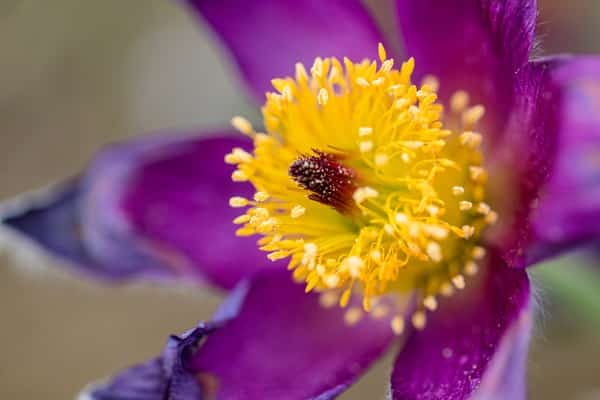Spring, a season often welcomed for its blooming flowers and warmer weather, also marks the onset of allergy season for many people. Each year, countless individuals find themselves grappling with the frustrating symptoms triggered by various allergens that thrive during this time. Understanding these allergies, their causes, and effective management strategies is crucial for those seeking relief. This article aims to provide comprehensive insights and practical tips on how to tackle allergies this spring, ensuring you can enjoy the season with minimal discomfort.
Contents
- 1 Identifying and Exploring Spring Allergies
- 2 Recognizing Allergy Symptoms
- 3 Preparing Your Home Environment
- 4 Dietary Adjustments for Allergy Relief
- 5 The Role of Medication
- 6 Natural Remedies and Alternative Therapies
- 7 Lifestyle Changes and Allergy Management
- 8 Consulting Healthcare Professionals
- 9 Spring Forward With Effective Allergy Solutions
Identifying and Exploring Spring Allergies

Allergies in spring are primarily triggered by the increased presence of airborne allergens such as pollen. Trees, grasses, and weeds release these tiny grains into the air to fertilize other plants, but they can also invade your nasal passages, leading to allergic reactions. Mold spores, another common spring allergen, thrive in damp, humid conditions often found during this season. Understanding these triggers is the first step in managing spring allergies effectively.
While the same allergens return each spring, the intensity and timing of their appearance can vary. Climate changes and weather patterns significantly influence the concentration of allergens in the air. For instance, a mild winter can lead to an early and prolonged allergy season. These variations make it essential to stay informed about local allergen forecasts and prepare accordingly, tailoring your allergy management strategies to the current conditions.
Recognizing Allergy Symptoms

Spring allergy symptoms often mimic those of a cold, making it crucial to distinguish between the two. Common symptoms include a runny nose, sneezing, itchy or watery eyes, and nasal congestion. Unlike colds, which usually resolve within a week or two, allergy symptoms persist as long as the person is exposed to the allergen. This persistence is a key indicator that allergies are the culprit.
Additionally, allergies can cause symptoms that are less common in colds, such as itchy throat, ears, and eyes. Some individuals may also experience allergic shiners, which are dark circles under the eyes caused by increased blood flow near the sinuses. Allergy-induced asthma is another concern, marked by symptoms like wheezing and difficulty breathing. Recognizing these symptoms early is vital for effective management and prevention of more severe reactions.
Preparing Your Home Environment

Creating an allergen-free sanctuary at home can significantly reduce the severity of allergy symptoms. Regular cleaning is essential, focusing on areas where allergens tend to accumulate, like carpets, bedding, and upholstery. Using a vacuum cleaner with a HEPA filter can trap fine particles like pollen and mold spores, preventing them from circulating in your home. Keeping windows closed during high pollen days also helps in minimizing the intrusion of outdoor allergens.
In addition to cleaning, regulating the indoor environment plays a crucial role in allergy management. Using air purifiers with HEPA filters can help remove airborne allergens from your home. Controlling humidity levels is also important, as high humidity can encourage mold growth, while too dry air can irritate nasal passages. Aim to maintain indoor humidity levels between 30-50%. These steps, combined with regular cleaning, can make your home a more comfortable place during allergy season.
Dietary Adjustments for Allergy Relief

The role of diet in managing allergies is often underestimated. Certain foods can exacerbate allergy symptoms, while others might provide relief. For instance, foods rich in Vitamin C, like oranges and bell peppers, can strengthen the immune system and potentially reduce the severity of allergic reactions. Additionally, spicy foods can act as natural decongestants, helping to alleviate nasal congestion.
Conversely, some foods can worsen allergy symptoms. Foods that contain histamines, such as aged cheeses and fermented products, might exacerbate symptoms in sensitive individuals. Paying attention to how your body reacts to different foods during allergy season is crucial. Incorporating anti-inflammatory foods, like omega-3-rich fish and nuts, can also be beneficial. Consulting a nutritionist can provide personalized dietary advice tailored to your allergy profile and overall health.
The Role of Medication

Over-the-counter (OTC) and prescription medications are pillars in the management of spring allergies. Antihistamines, for example, are commonly used to alleviate symptoms like itching and sneezing. They work by blocking the action of histamine, a chemical released during an allergic reaction. Decongestants are another popular choice, especially for relieving nasal congestion, though they should be used cautiously to avoid potential side effects.
Prescription options include stronger antihistamines and corticosteroid nasal sprays, which are effective in reducing inflammation in the nasal passages. It’s essential to consult with a healthcare professional before starting any medication, particularly if you have other health conditions or are taking other medications. Understanding the correct usage and potential side effects of these medications can significantly improve their effectiveness in allergy management.
Natural Remedies and Alternative Therapies

Exploring natural remedies can offer additional relief for allergy sufferers. Herbal teas, such as peppermint or green tea, have properties that may help reduce congestion and soothe irritated nasal passages. Essential oils like eucalyptus and lavender can also be used in aromatherapy to open up airways and promote relaxation, which might help alleviate some allergy symptoms.
Alternative therapies, such as acupuncture and homeopathy, have been sought after for their potential benefits in allergy relief. Acupuncture, for instance, aims to restore balance in the body and has been used to treat various allergy symptoms. However, it is crucial to approach these alternative methods with caution and seek treatments from certified professionals. While some find these therapies beneficial, it’s important to complement them with more conventional treatments and consult with healthcare providers for a comprehensive allergy management plan.
Lifestyle Changes and Allergy Management

Incorporating lifestyle changes is a key strategy in managing spring allergies. Stress management techniques like yoga, meditation, or regular exercise can strengthen the immune system and potentially reduce the severity of allergy symptoms. Regular physical activity, in particular, can help clear nasal passages and improve overall health, making the body more resilient against allergens.
Adjusting outdoor activities can also be beneficial. Activities like gardening or jogging should be timed to avoid peak pollen times, usually during early morning or late afternoon. Wearing protective gear, such as sunglasses and masks, can also help reduce exposure to allergens. Keeping track of pollen counts and planning activities accordingly can significantly minimize exposure and discomfort during high-allergy days.
Consulting Healthcare Professionals

Consulting with healthcare professionals is crucial, especially for those experiencing severe or persistent allergy symptoms. Allergists can provide tailored advice and treatment plans, including allergy testing to identify specific triggers. This personalized approach is particularly beneficial for individuals who struggle with managing their symptoms through general measures.
Allergy testing, whether skin tests or blood tests, can reveal the specific allergens causing reactions, allowing for more targeted treatment strategies. In some cases, allergists may recommend immunotherapy, which involves gradually increasing exposure to allergens to build up a tolerance. This long-term treatment approach can be highly effective, but it requires close supervision by a healthcare professional. Seeking expert advice ensures that allergy management is both effective and safe, tailored to individual needs and health conditions.
Spring Forward With Effective Allergy Solutions
As spring blossoms, so can your ability to effectively manage allergies. By adopting a combination of home adjustments, dietary considerations, medication, natural remedies, and lifestyle changes, you can significantly reduce the discomfort caused by seasonal allergens. Remember, consulting healthcare professionals for personalized advice is always a wise decision. Embrace these strategies and step into spring with confidence and ease. Don’t let allergies hold you back from enjoying the beauty and vitality of the season.


